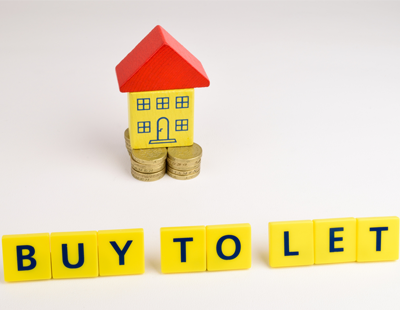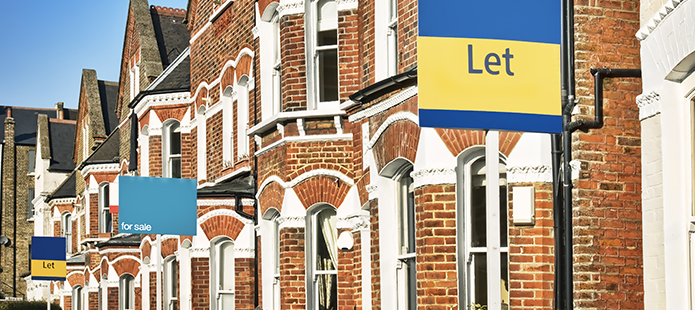Rent rises are inevitable after tax clampdown on buy-to-let
10-15-2016

Buy-to-let landlords may have failed in their recent legal battle against planned government tax relief changes for buy-to-let homes set to be introduced next year, but the real losers will almost certainly be private tenants.
The failed attempt to seek a Judicial Review of legislation reducing the mortgage interest tax relief for landlords was brought by landlords Steve Bolton and Chris Cooper of campaign group Axe the Tenant Tax, who in a joint statement said they were “outraged” by the decision, and for good reason.
The existing rules that permit landlords to offset all of their mortgage interest against tax will, from April 2017, be phased out, restricting the amount of mortgage interest landlords can offset against tax on their property investments.
By April 2020, once they have been withdrawn altogether, the disastrous consequences of Section 24 will mean that it is likely that higher-rate tax payers will only receive 50% of the relief that they currently get, which will eat into their rental returns.
With many landlords likely to face the prospect of having their profits unjustly wiped out, the majority of those who have invested in the private rented sector will have no option but to recoup their losses through higher rents, with tenants paying the price of the government’s tax-grab.
Research conducted by Property118 members earlier this year revealed how up to 4.6 million tenants could be affected by the now former chancellor George Osborne’s tax attacks on buy-to-let landlords.
In spite of ever-mounting criticism from various quarters of the private rental sector, the government plans to press ahead with the Clause 24 tax-grab, but first it should consider some lessons from overseas.
In Israel, for example, finance minister Moshe Kahlon’s plan to impose a new tax on owners of three or more homes beginning next year has not been officially approved yet with many housing experts and lawmakers opposed to the initiative, but Israel’s landlords are not waiting to see whether the measure passes.
Tenants report that landlords are already inserting clauses into contracts to pass on the fee’s cost.
Dudu Michaeli, a 48 year old tenant living in Tel Aviv told Haaretz, the Israeli news publication, that his landlord owns 10 apartments, which will make him liable for extra taxes from January.
“In August the landlord called me to renew the contract for another year and told me that he’s raising the rent by 300 shekels [£65 a month],” Michaeli said.
“That’s a 10% increase and I was mad. He didn’t give me any advance warning and with just a month till the end of my lease I wasn’t going to be able to find another apartment easily.”

Already there are comparable signs of landlords preparing to deal with higher costs by increasing rents here in the UK.
Last year, one of the UK’s largest and most controversial private landlords, Fergus Wilson, reportedly managed to increase rents across a number of his 900 buy-to-let properties in Kent by up to 33% to ensure that his property empire remains profitable following the tax relief changes announced by the now former chancellor George Osborne.
Ultimately, if the Treasury does not quickly start to recognise residential landlords as a business and reverse its planned tax changes, it will do little more other than to choke off supply and push up rents.
A recent survey conducted by the Residential Landlords Association found that 84% of landlords are likely to consider increasing rents following the former chancellor’s decision to withdraw the level of tax relief that they can claim.
In England and Wales, tenants are already having to fork out more than £70 extra per month to their private landlords compared to last year – a rise of 8.7%, according to the latest figures from letting agents Your Move.
Private rents hit a new record high of £887 per month in August and signs are that they will rise further in the coming months, largely as a consequence of Section 24 and higher stamp duty rates.
The changes to stamp duty and tax relief will make it harder to make a profit from letting property, which in turn could deter investment in the sector.
Aside from the introduction of the stamp duty surcharge in April and the fact that mortgage tax relief is set to be phased out from next year, the 10% Wear and Tear tax relief for landlords who rent out furnished homes has now been abolished, leaving them free to only claim for the amount that they have spent.
In addition, the Bank of England’s Financial Policy Committee is being granted greater powers over the buy-to-let market, which could make it even harder to get a mortgage, while landlords have also been hit with new rules, which include having to check the residency of their tenants along with various health and safety regulations.

So whilst investing in property has long been perceived to be a safe alternative to the failing of the pensions industry, low savings rates and volatile stock markets, the reality is that for many people it is becoming much harder to make a profit from letting property, without increasing rents.
It is unfortunate that many tenants will end up paying the price through higher rents, but landlords will have no choice but to raise rents if they are going to have a chance of staying in business as a consequence of these unfair tax hikes.
The changes being made to buy-to-let tax also begs the question; how will this impact on the commission fees charged by letting agents?
At the moment, many buy-to-let landlords who use a letting agent to manage their properties typically pay a monthly percentage rate of between 10% and 15% for a full management service, which includes finding tenants, drawing up rental agreements and maintaining the property, and so any increase in rental prices would in theory push up letting agents’ fees, based on the percentage of the rent.
But in reality, with landlords being financially squeezed, how long until many more turn their attentions to not just increasing rents for tenants but also negotiating down the fees that they are charged by agents?
*Marc Da Silva is Estate Agent Today and Letting Agent Today Features Editor. You can follow him on Twitter @propertyjourno

